Ocean to PDF is an initiative aimed at converting ocean-related data into accessible‚ shareable documents. It emerged in the 2000s‚ focusing on improving public understanding of marine environments and promoting sustainability through education and research.
1.1 Understanding the Concept of Ocean to PDF
Ocean to PDF refers to the process of converting ocean-related data‚ research‚ and information into portable‚ accessible PDF formats. Originating from the ocean literacy movement in the 2000s‚ it aims to simplify complex marine data for global sharing‚ education‚ and environmental awareness‚ utilizing digital tools for precise and engaging document creation.
1.2 Importance of Converting Ocean Data to PDF
Converting ocean data to PDF is crucial for preserving and sharing marine research globally. It enhances accessibility‚ ensuring information reaches educators‚ scientists‚ and the public. PDFs maintain data integrity‚ making them ideal for long-term storage and distribution‚ thus supporting environmental advocacy and fostering a deeper understanding of ocean health and conservation efforts worldwide.
The Purpose of Ocean to PDF
Ocean to PDF aims to make marine data accessible and shareable‚ facilitating education‚ research‚ and environmental advocacy by converting complex information into a universal‚ user-friendly format.
2.1 Sharing Ocean Research and Data
Sharing ocean research and data through PDFs facilitates collaboration among scientists‚ educators‚ and policymakers. It ensures accurate information dissemination‚ promoting a unified understanding of marine ecosystems and conservation efforts globally.
2.2 Preserving Ocean Literacy for Future Generations
Converting ocean data to PDF preserves vital information for educational purposes‚ ensuring future generations can learn about marine ecosystems. This format supports long-term accessibility‚ making it easier to integrate ocean literacy into school curriculums and community programs‚ fostering environmental awareness and stewardship.
The Process of Converting Ocean Data to PDF
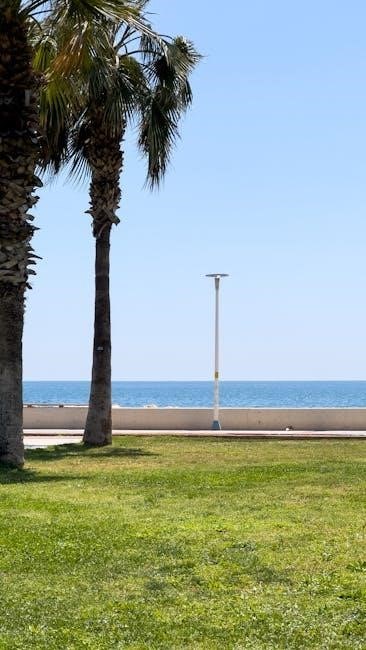
Converting ocean data to PDF involves systematically collecting‚ organizing‚ and formatting information from marine research and studies into a structured‚ easily shareable document‚ ensuring accuracy and clarity for wide accessibility.
3.1 Collecting Ocean Data from Reliable Sources
Collecting ocean data involves gathering information from trusted sources like marine research institutions‚ scientific journals‚ and environmental organizations. This ensures accuracy and relevance‚ supporting conservation efforts and public education on ocean health and sustainability‚ aligned with the global movement to combat marine environmental deterioration and promote literacy.
3.2 Formatting Ocean Information for PDF
Formatting ocean data for PDF involves organizing content clearly‚ using bullet points‚ images‚ and infographics to enhance readability. Structuring information logically ensures accessibility‚ making complex data understandable for various audiences‚ from researchers to educators‚ while maintaining visual appeal and clarity.
3.3 Using Tools for Ocean to PDF Conversion
Specialized tools like Adobe Acrobat and Smallpdf simplify ocean data conversion to PDF. These tools support various formats‚ ensuring accurate and visually appealing documents. They offer features like batch processing and real-time editing‚ making the conversion process efficient and preserving the integrity of ocean research and data for widespread accessibility.

Benefits of Ocean to PDF
Converting ocean data to PDF enhances accessibility‚ facilitates sharing‚ and promotes environmental awareness. It ensures information is preserved‚ easily distributable‚ and accessible to a global audience‚ fostering collaboration and education on marine conservation efforts while maintaining data integrity and readability across various platforms.
4.1 Enhancing Accessibility of Ocean Information
Converting ocean data to PDF makes it accessible to everyone‚ regardless of location or technical expertise. PDFs are universally compatible‚ ensuring that critical marine research and educational materials reach a broader audience‚ thus bridging knowledge gaps and fostering global understanding of ocean conservation and sustainability efforts effectively.
4.2 Facilitating Sharing and Collaboration
PDF conversion simplifies the sharing of ocean data‚ enabling seamless collaboration among researchers‚ educators‚ and policymakers. Compatible across all devices‚ PDFs ensure that marine research and findings are easily distributed via email‚ cloud platforms‚ or websites‚ fostering teamwork and promoting a unified approach to addressing ocean-related challenges globally.
4.4 Promoting Environmental Awareness
Ocean to PDF plays a crucial role in spreading awareness about marine ecosystems and conservation efforts. By converting data into engaging‚ visually appealing PDFs‚ complex oceanic information becomes accessible to the public‚ inspiring action and fostering a deeper connection to environmental stewardship and sustainability.
Tools and Resources for Ocean to PDF
Various tools and resources enable efficient conversion of ocean data into PDFs‚ including online converters and desktop software‚ facilitating accurate and visually appealing document creation;
5.1 Online Converters for Ocean Data
Online converters for ocean data offer a convenient way to transform marine information into PDFs. These tools support various formats‚ ensuring accurate and visually appealing documents. They often feature user-friendly interfaces‚ batch processing‚ and customization options‚ making them ideal for researchers‚ educators‚ and advocates. Their efficiency in handling large datasets and preserving data integrity makes them indispensable for sharing ocean insights effectively across diverse platforms.
5.2 Desktop Software for PDF Creation
Desktop software for PDF creation provides advanced tools for designing and formatting ocean data. Programs like Adobe Acrobat‚ PDFCreator‚ and Scribus offer robust features for custom layouts‚ embedding multimedia‚ and ensuring data integrity. These tools are ideal for creating professional-grade documents‚ enabling users to produce visually appealing and detailed PDFs that effectively communicate complex ocean information to various audiences.
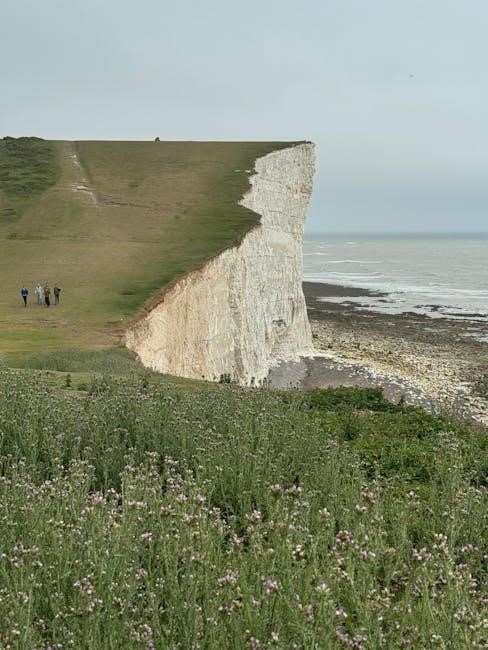
Best Practices for Creating Ocean PDFs
Ensure clarity by structuring content logically‚ incorporate visuals for better understanding‚ and optimize for SEO to enhance accessibility and reach a broader audience effectively.
6.1 Structuring Content for Clarity
Organize content with clear headings‚ subheadings‚ and bullet points for easy navigation. Use concise language and visuals like charts or images to simplify complex ocean data‚ ensuring readability and engagement for diverse audiences.
6.2 Incorporating Visual Elements
Enhance PDFs with high-quality images‚ infographics‚ and charts to visualize ocean data. Visuals like maps and graphs simplify complex information‚ making it engaging and easier to understand for readers‚ while also emphasizing key environmental and scientific points effectively.
6.3 Ensuring SEO-Friendly Content
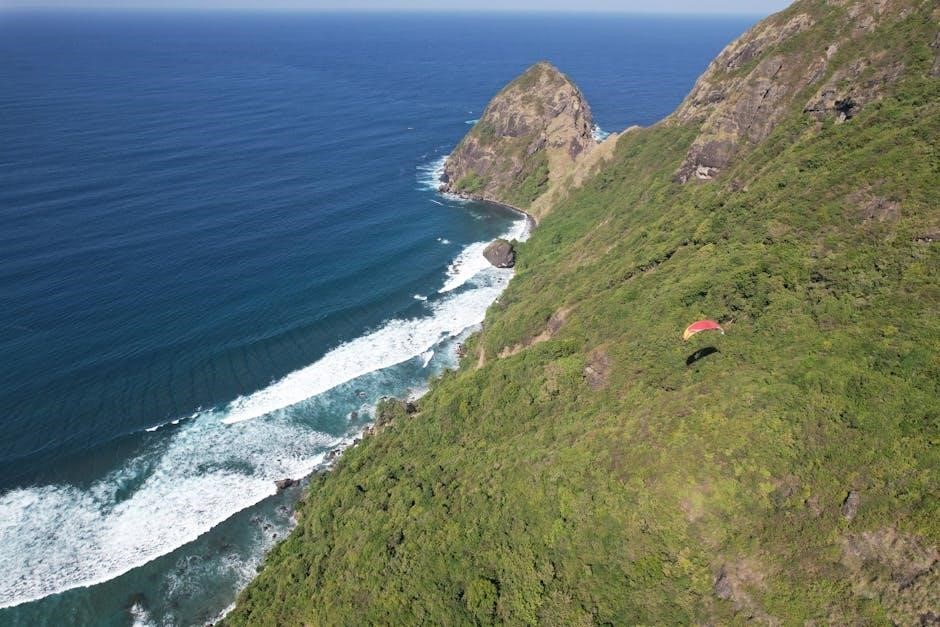
Challenges in Ocean to PDF Conversion
Managing large datasets and maintaining data accuracy are key challenges. Ensuring reliable and precise information is crucial for preserving the integrity of ocean research and literacy efforts.
7.1 Managing Large Datasets
Handling vast amounts of ocean data requires robust tools and techniques to ensure accuracy and accessibility. Large datasets can be complex‚ making storage and retrieval challenging. Effective management is essential for maintaining data integrity and enabling efficient sharing and analysis in PDF formats.
7.2 Maintaining Data Accuracy
Ensuring the precision of ocean data is crucial for reliable PDF conversion. Errors in data collection or processing can lead to misinformation. Regular validation‚ cross-referencing with reliable sources‚ and using advanced software help maintain accuracy‚ preserving the integrity of ocean research and ensuring trustworthy content in PDF formats.
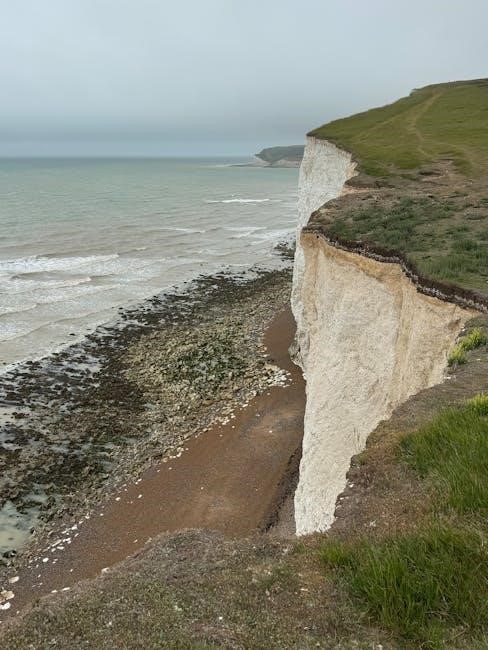
Applications of Ocean PDFs
Ocean PDFs serve educational purposes‚ support scientific research‚ and aid environmental advocacy‚ making ocean data accessible and promoting conservation efforts worldwide.
8.1 Educational Materials
Ocean PDFs are widely used in educational settings to teach ocean literacy and sustainability. They provide structured content‚ including textbooks‚ activity books‚ and guides‚ making complex marine concepts accessible. These materials often include interactive elements like diagrams and infographics‚ engaging students and fostering a deeper understanding of ocean conservation and its importance for future generations.
8.2 Scientific Reports
Ocean PDFs are essential for compiling and sharing scientific research on marine ecosystems‚ climate change‚ and conservation efforts; They provide a structured format for presenting data‚ analysis‚ and visual elements like charts and graphs‚ enabling researchers to collaborate effectively and disseminate findings to a broader audience.

8.3 Environmental Advocacy
Ocean PDFs play a crucial role in environmental advocacy by providing accessible‚ shareable resources for campaigns and educational initiatives. They often include infographics‚ case studies‚ and actionable steps to inspire change. These documents help raise awareness about marine conservation‚ promoting efforts to protect biodiversity‚ reduce plastic waste‚ and address climate impacts on ocean ecosystems.
Future Trends in Ocean to PDF
Future trends include integrating AI for smarter data processing and enhancing accessibility features‚ ensuring ocean information is more widely available and user-friendly for global audiences.
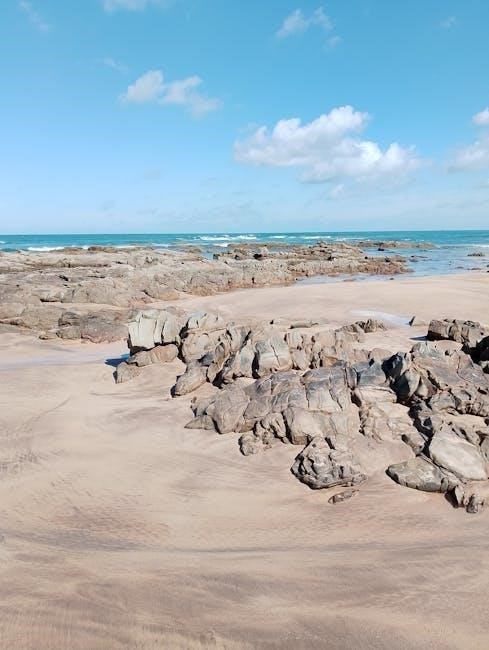
9.1 Integration with AI and Machine Learning
AI and machine learning will revolutionize Ocean to PDF by automating data conversion‚ enhancing accuracy‚ and enabling advanced analytics. These technologies will optimize ocean data processing‚ identify patterns‚ and improve accessibility‚ ensuring PDFs are more informative and user-friendly for global audiences.
9.2 Enhanced Accessibility Features
Future Ocean to PDF tools will incorporate enhanced accessibility features‚ such as screen reader compatibility and alt text for images‚ ensuring ocean data is reachable to all users‚ including those with disabilities. These improvements will promote inclusivity and broaden the audience for ocean research and education globally.
Ocean to PDF is a vital tool for preserving and sharing ocean knowledge‚ fostering education‚ research‚ and environmental advocacy while promoting widespread adoption for global sustainability.
10.1 Summarizing the Value of Ocean to PDF
Ocean to PDF transforms complex marine data into accessible‚ shareable formats‚ supporting education‚ research‚ and advocacy. It bridges knowledge gaps‚ fosters collaboration‚ and promotes sustainability‚ ensuring ocean literacy for future generations while inspiring action to protect marine ecosystems.
10.2 Encouraging Widespread Adoption
Encouraging widespread adoption of Ocean to PDF empowers global communities to access and share marine data effectively. By promoting its benefits‚ such as enhanced accessibility and collaboration‚ we can inspire educators‚ researchers‚ and advocates to embrace this format‚ fostering a culture of sustainability and ocean literacy worldwide.
